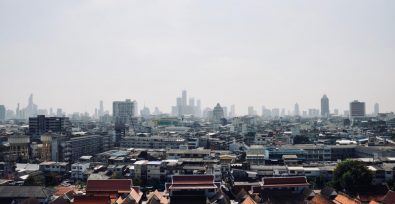Last June, the U.S. State Department’s Trafficking in Persons (TIP) Report downgraded Thailand to its Tier 2 Watch List in response to the country’s worsening human trafficking problem. In an opinion piece published by Thomson Reuters Foundation, Judy Gearhart from Accountability Research Center (ARC) explores how governmental repression of trade unions and civil society is holding Thailand back in the fight to end slavery.
Thailand is failing to effectively address trafficking
In 2014, reports emerged of the complicity of Thai government officials in human trafficking in the country’s fishing sector. Following a wave of negative media coverage and trade pressure from the European Union, a few positive steps were taken to tackle the issue: Thailand ratified the International Labour Organization (ILO) Convention 188 on Work in Fishing and introduced port inspection programs.
But these measures are wholly insufficient. The ILO Convention 188 has not been implemented, and the port inspections have not led to the identification of a single victim of labor trafficking, according to the TIP report.
How governmental repression is worsening the problem
Meanwhile, the government has been criticized for repressing migrant workers’ rights to organize and bargain as a collective. Unions argue that this repression makes it impossible for survivors to speak out and be part of the solution.
The government is also taking action against organizations that support and advocate for migrant workers. As a clear example, the state is pursuing criminal charges against Sawit Kaewwan, the secretary-general of the State Enterprises Workers’ Relations Confederation (SERC), and 12 of his colleagues for a national railways safety campaign they launched over ten years ago.
In Thomson Reuters Foundation, Judy Gearhart argues:
The charges appear politically motivated because they were filed in 2019, just before the statute of limitations expired and after union leaders had already been fined 24 million Baht ($713,000) in 2018.
Dave Welsh, Thailand director for the Solidarity Center noted: “Sawit has been out front and extremely impactful in his work to welcome and integrate migrant workers into the Thai labor movement. Given the political sensitivities within the government and the business sector around providing rights to migrant workers and Sawit’s strong role in advocating for them, there is no doubt there is a link between his advocacy for migrant workers and the legal harassment he has faced over the past decade.”
As Gearhart explains, this repression is part of the Thai government’s wider efforts to shrink civil society space and limit freedom of expression.
Real change requires collaboration
Thailand now has two years to make clear progress in the fight against human trafficking or else it risks trade sanctions from the U.S. The support and counsel of organizations like SERC would be invaluable to the government’s anti-trafficking efforts. Indeed, Sawit and his colleagues have made several offers to support the government’s outreach to migrants in the past. However, if the state continues to view such organizations as the enemy, little progress can be made.







Freedom United is interested in hearing from our community and welcomes relevant, informed comments, advice, and insights that advance the conversation around our campaigns and advocacy. We value inclusivity and respect within our community. To be approved, your comments should be civil.